Artificial Intelligence in the Hospitality Industry
Artificial intelligence in the hospitality industry refers to integrating AI technologies to enhance guest experiences, operational efficiency, and personalized services. It’s important for automating routine tasks, providing data-driven insights, improving customer service, and driving innovation, thus shaping the future of hospitality in a tech-driven world.
Key Takeaways
- Enhancing Customer Service: AI in hospitality improves customer interactions with tools like chatbots, providing quick and efficient responses to inquiries.
- Data Analysis for Personalization: AI’s ability to analyze customer data enhances personalization, improving guest experiences and service customization.
- Operational Efficiency: AI technologies streamline operations in hospitality, optimizing tasks like revenue management and reducing human error.
- Revenue Management: AI assists in dynamic pricing strategies, optimizing rates based on demand forecasts and market conditions.
- Chatbots for 24/7 Guest Interaction: AI chatbots provide round-the-clock guest interaction for queries and support.
Table of Contents:
- What Is Artificial Intelligence?
- Why Is Artificial Intelligence Becoming Important in the Hospitality Industry?
- Benefits of Using Artificial Intelligence in the Hospitality Industry
- 12 Examples of How to Use Artificial Intelligence Within the Hospitality Industry
- 1. In-Person Customer Service
- 2. Chatbots and Messaging
- 3. Data Analysis
- 4. Voice-Based Digital Assistance
- 5. AI Sentiment Analysis
- 6. Dynamic Pricing
- 7. AI-Powered Revenue Management
- 8. Customer Loyalty Systems
- 9. Utility Predictions & Waste Reduction
- 10. Digital Concierges
- 11. Chatbot Translators
- 12. Smart Product Placements
- Examples of Hospitality Businesses Using Artificial Intelligence
- Virtual Reality & Augmented reality
- More Digital Trends
Introduction
As computer technology has advanced, artificial intelligence has become more reliable, enhancing its standing within the business world. Indeed, hospitality companies increasingly use AI to carry out customer service tasks, especially important within hotels and resorts. In this article, you get a closer look at which way artificial intelligence is revolutionizing the hospitality industry.
What Is Artificial Intelligence?
Artificial intelligence, or AI, refers to the performance of seemingly intelligent behaviors by computers or machines. Artificial intelligence, as a concept, has existed since the 1950s. Still, it is only recently that technology has advanced to the point where it can be considered reliable enough to deploy for important business tasks. Essentially, AI refers to computers or machines carrying out tasks that were traditionally thought to require cognitive function to carry out.
It is associated with concepts like automation and big data. Today, the collection of customer data, combined with the improvements to computer technology, means that artificial intelligence can be utilized for a huge range of functions, from basic customer service to personalization tasks, more advanced problem-solving, and even for sales processes and direct messaging. According to The Annual McKinsey Global Survey, one-third of the respondents say their organizations regularly use gen AI in at least one business function.
Why Is Artificial Intelligence Becoming Important in the Hospitality Industry?
Artificial intelligence is playing an increasingly important role in hospitality management, primarily because of its ability to carry out traditionally human functions at any time of the day. This potentially means hotel owners can save significant money, eliminate human error, and deliver superior service.
In particular, customer service is a vital part of the travel industry, with hotels often living and dying based on how they treat their customers. With artificial intelligence, the possibilities for improving this aspect are almost endless, ranging from increased personalization to tailored recommendations.
One of the key customer service challenges for hotels is responding to customer questions quickly; artificial intelligence now provides an additional option for tackling this problem. Moreover, it can assist with tasks like data analysis and, through data collection, can effectively “learn” and adapt to customer interactions.
Table: Hospitality Services – Traditional Approach vs AI-Enhanced Approach
Benefits of Using Artificial Intelligence in the Hospitality Industry
Read about the few important benefits of using artificial intelligence in hospitality below.
Improving Revenue
While AI can’t replace the human touch in the hospitality industry, AI-powered tools can handle many of the tasks traditionally undertaken by staff. Many back-office tasks can be automated, reducing human error, increasing efficiency, and freeing up staff for more important work.
AI is especially valuable for complex tasks like reconciling revenue from multiple disparate sources. Work that would take several days for humans can be completed by AI in a matter of minutes, with any discrepancies highlighted so they can be addressed. Another example is RPA (robotic process automation). RPA can take over repetitive tasks more rapidly and with fewer errors.
Improving Customer Experience
Artificial intelligence can enhance the customer experience, especially through personalization. AI solutions make it much easier to record and update customer preferences. AI facilitates detailed record-keeping, helping to track previous purchasing patterns, likes and dislikes, the services the guest has used in the past, their levels of satisfaction, and more.
In this way, curating each guest’s experience makes it possible to make their stay outstanding. AI solutions can also assist in upselling by suggesting additional purchases that might interest the customer. This detailed metadata is useful in creating the best experience for every guest.
Increasing Operational Effectiveness
Artificial intelligence can play a beneficial role in operational effectiveness. Data management in the hospitality industry can be challenging. AI can help here. Data is collected at many different points throughout a hotel, from POS (point of sale) systems to PMS (property management systems), as well as from interactions between guests and staff: requests, comments, complaints, orders for food, etc.
Sophisticated AI tools can help to collate this data and turn it into meaningful and actionable recommendations. Artificial intelligence can use data collected from all of the hotel’s departments to anticipate guests’ needs and streamline the hotel’s operations.
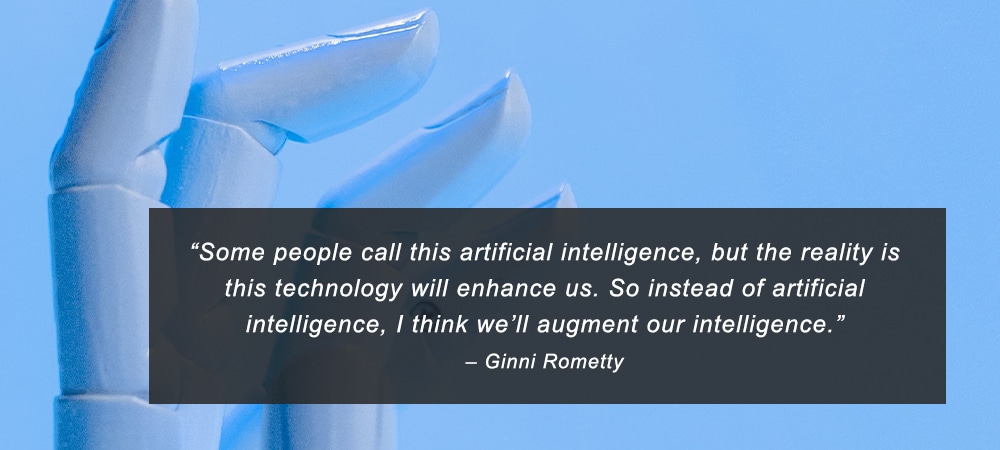
12 Examples of How to Use Artificial Intelligence Within the Hospitality Industry
Although the use of artificial intelligence within the hotel industry is still in its relative infancy. However, according to the AI In Hospitality Market Research Report, AI use in Hospitality is estimated to reach a value of USD 8,120 million by 2033, and it already has numerous practical applications, some of which are outlined in more detail below:
1. In-Person Customer Service
An example of artificial intelligence in the hospitality industry is using AI to deliver in-person customer service. We are already seeing the development of robots with artificial intelligence, and the potential for this technology to grow is enormous. Already, it can deal with basic customer-facing situations.
So far, the best example of this has been an AI robot called ‘Connie’, adopted by Hilton. The robot can provide tourist information to customers who interact with it. Most impressively, it can learn from human speech and adapt to individuals. Ultimately, this means the more customers speak to it, the better it will get.
Example: Meet Connie, Hilton Hotels’ First Robot Concierge
2. Chatbots and Messaging
Perhaps the most obvious way those within the hospitality sector can deploy artificial intelligence is for front-facing customer service. In particular, the technology is extremely effective for direct messaging and online chat services, responding to simple questions or requests.
For example, AI chatbots have been utilized on social media platforms, allowing customers to ask questions and get almost instantaneous responses 24 hours a day, seven days a week. This is invaluable to hotels, because it provides the type of response times that are almost impossible to maintain with human-to-human interaction.
Example: Sam, an intelligent travel chatbot!
3. Data Analysis
Another way in which AI is being utilized within the hotel industry away from pure customer service is in data analysis. In this capacity, the technology can quickly sort through large amounts of data and draw important conclusions about customers, or potential customers.
An example of this has been seen with the Dorchester Collection hotel chain, which has used the Metis AI platform. By using this technology, the company has been able to sort through data collected via surveys, online reviews, etc. The AI has been able to analyze this and then conclude the overall performance.
4. Voice-Based Digital Assistance
Artificial intelligence has produced a lot of useful technologies, including major advancements in the field of voice recognition. Many people are now accustomed to voice-activated technologies in the home and on their mobile devices, such as digital assistants. This technology can be deployed even more effectively in the hospitality industry.
Voice activation can be embedded in all kinds of devices, from a guest’s smartphone or laptop to a tablet provided by the hotel. With these systems, a guest can adjust the air conditioning or heating in the room, turn on the TV or stereo, order room service, or contact the front desk.
5. AI Sentiment Analysis
Artificial intelligence can help analyze consumer attitudes to your brand. As more and more people use social media to find hotels and talk about their stay, social platforms have become an important way to interact with customers and garner valuable information about perceptions of your business among the public. This wealth of data would be hard for human staff to track down and collect.
For artificial intelligence, it’s easy. Today’s sentiment analysis tools can keep track of conversations about your hotels, gauge how customers respond to a particular feature, and pick up common complaints or positive comments. This data can be used to improve your offerings.
Video: How Sentiment Analysis Works
6. Dynamic Pricing
Room rates need to be set at an optimal level, reflecting demand and changes in the market. Artificial intelligence powers tools that can process large amounts of data regarding occupancy, demand, and trends in the local market.
Using this data, AI solutions can create real-time recommendations and develop a dynamic pricing structure that works for your hotel. This means that your hotel will never miss out on a potential guest through overpricing while at the same time avoiding the problem of selling rooms too cheaply. In this way, AI ensures optimal revenue.
7. AI-Powered Revenue Management
Artificial intelligence powers tools for revenue management (RM). RM refers to the use of data and analytics to determine the optimal price of a product, how to get the product to those who want to purchase it, and which channels to utilize.
Customers in different customer groups perceive value differently, and it’s important to set prices that will be appropriate for the group you want to target, as well as the time at which they’ll be making their purchase. AI RM tools can help you find the most effective distribution channels and adjust your prices to appeal to specific customer groups.
Video: AI Revenue Management Revolution
8. Customer Loyalty Systems
Loyalty programs are hugely important in the hospitality industry, helping to secure repeat customers and letting your guests know that you value them. The number of participating customers continues to increase. Artificial intelligence can help to streamline loyalty programs and use customer data from these programs to curate personalized offerings for repeat guests.
This helps to cement customer loyalty, avoiding churn and securing a faithful customer base for your hotel. AI can also help to develop new offerings for first-time customers, tailoring these to encourage customers to stay with you again.
Video: How to use AI in loyalty programs
9. Utility Predictions & Waste Reduction
Food waste and the waste of other perishable items can be a big problem, especially in a large hotel. Artificial intelligence can help here. In the hospitality industry, AI tools allow businesses to monitor the amounts and types of food purchased and consumption rates. This lets businesses predict their requirements more accurately, avoiding waste and ensuring that ingredients don’t run out.
AI tools can also help predict the use of utilities such as power and water, tracking consumption and reducing costs here. For example, in-room heating and air conditioning can be connected to the hotel’s PMS so energy isn’t wasted on unoccupied rooms.
10. Digital Concierges
A digital concierge is a guest communication system powered by AI. It’s superior to a chatbot because it can understand context cues and keywords. For example, a digital concierge can distinguish between “Turn up the air conditioning” and “Why isn’t the air conditioning working?”
Requests the digital concierge can’t fulfill can be sent to the relevant department, such as housekeeping. Digital concierge services allow guests to receive immediate assistance whenever needed, all without hiring additional staff. This can significantly improve a guest’s experience.
Video: Avatar Use Case – Digital Concierge
11. Chatbot Translators
In the hotel industry, it’s common for guests to come from all over the world. This means, of course, that your guests will speak multiple languages. Chatbot translators can make life much easier for guests when they book their rooms. Artificial intelligence allows these chatbots to recognize languages and translate guest inquiries in real-time.
The latest generation of AI chatbots can communicate with your guests in their language, whether by text or through voice recognition technology. More advanced solutions can also collect and translate guest reviews, take restaurant bookings, and make recommendations in your guest’s native language.
12. Smart Product Placements
Artificial intelligence can provide power solutions for product placement. By combining geolocation data and data from predictive algorithms, hotels and other businesses in the hospitality industry can offer real-time recommendations to their customers, often via mobile apps. Historical data can be analyzed algorithmically to understand guest preferences and make recommendations.
This allows hotels to market ancillary products to their customers. Hotels can also offer customers more relevant and customized offerings. For example, a hotel chain could use this data to contact previous customers with a tailored package for their next holiday based on their location and previous purchasing patterns.
Examples of Hospitality Businesses Using Artificial Intelligence
Here are some real-world use cases of artificial intelligence solutions deployed effectively within the hospitality industry.
Cosmopolitan of Las Vegas
Cosmopolitan of Las Vegas has an AI-powered digital concierge. Named Rose, this is a voice-activated assistant similar to Apple’s Siri but specifically tailored to meet the needs of Cosmopolitan’s guests. On checking in, guests receive a calling card with Rose’s number. They can then text this number with their requests or use voice chat to interact with Rose.
Rose can handle typical guest requests such as fresh towels or toiletries, but the assistant shines when making local recommendations and helping guests choose the hotel services they might want. Rose can tell guests about local entertainment and sites of interest, forwarding unfamiliar requests to hotel staff.
Wendy’s
Fast-food chain Wendy’s had collaborated with Google to utilize Google Cloud in creating tools to enhance their customers’ experiences. Google Cloud has a wealth of artificial intelligence, machine learning, and data analytics tools that can be used in various ways.
The chain is devising new ways for customers to order food and leave feedback, employing speech-to-text and other AI-based technologies. The partnership with Google Cloud allows Wendy’s to improve their business analytics and use real-time machine learning and AI in their locations and on the cloud.
Henna na Hotel
Henna na Hotel’s claim to fame is that it is the first-ever robot-staffed hotel in Japan. Nearly every role in the hotel is fulfilled by an AI-powered robot. Humanoid robots greet guests at the front desk, while a friendly robotic dinosaur helps with onboarding.
The porters who carry guests’ suitcases to their rooms are also robots. Churi-chan’s pink robot assistant is on hand to serve in every room, ready to help with everything from local weather forecasts to dimming the lights. Churi-chan uses artificial intelligence to understand guests and can retrieve the information they need from the internet.
Video: Where Hotel Is Staffed by Robots
Virtual Reality & Augmented reality
Would you like to learn more about other digital technologies that can benefit your business? Look at the articles “How Virtual Reality Can Enrich the Hospitality Industry” and “How Augmented Reality is Transforming the Hospitality Industry”.
Artificial Intelligence in the Hospitality Industry FAQs
More Digital Trends
With digital technology continuously evolving, it should come as little surprise that its applications in the travel and hospitality industry also evolve. In the following articles, you will find the most innovative digital trends in the hospitality industry.
- Blockchain Technology and Its Uses in the Hospitality Industry
- Examples of Robots Being Used in the Hospitality Industry
- How the Internet of Things (IoT) Can Benefit the Hospitality Industry
- How Can Voice Control Benefit the Hospitality Industry?
- Use Cases of Facial Recognition in The Hospitality Industry
- Smart Hotel; What Are the Benefits for Hotel Owners and Guests?
- Ways to Transform a Hotel Room Into a Smart Room

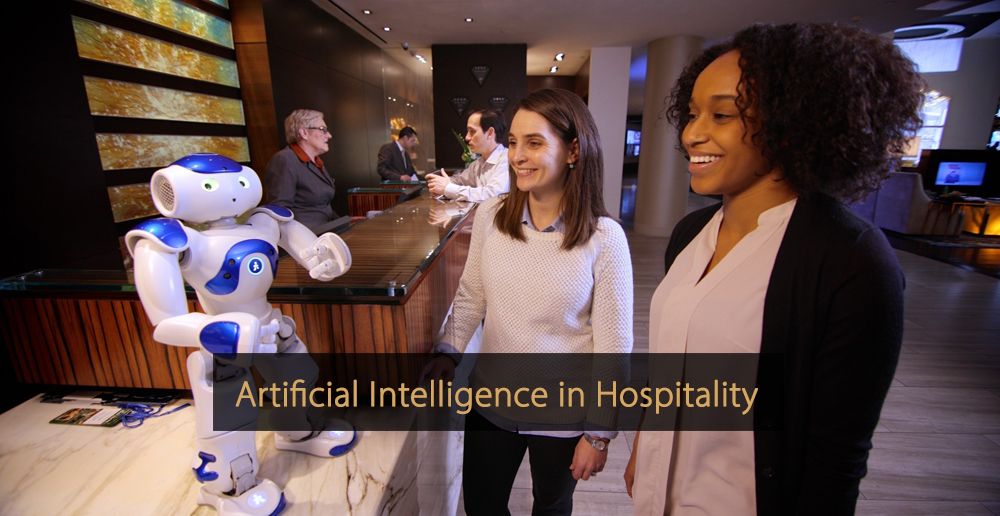

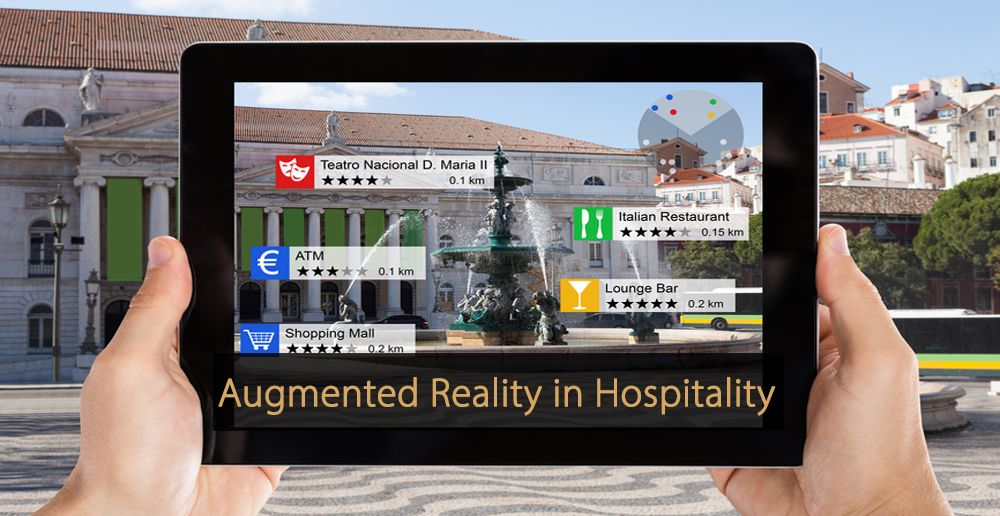

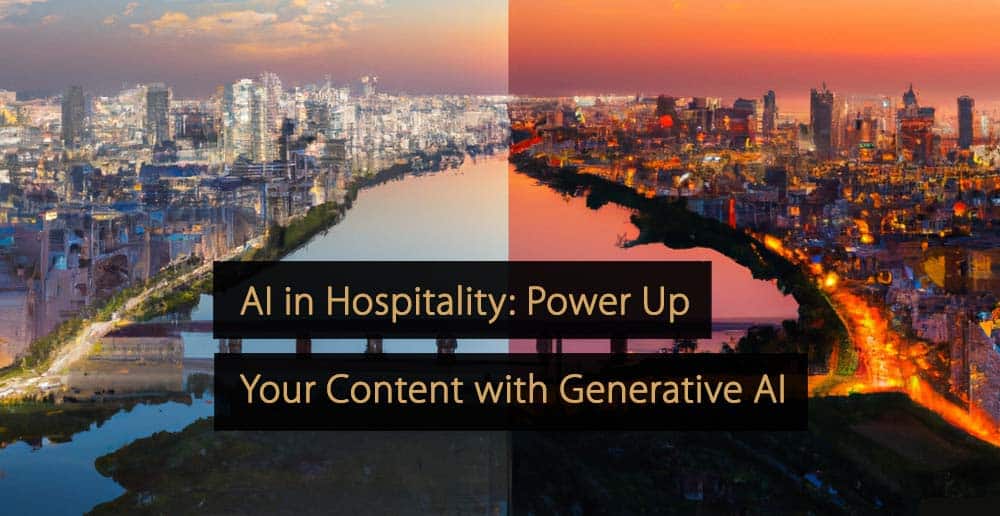

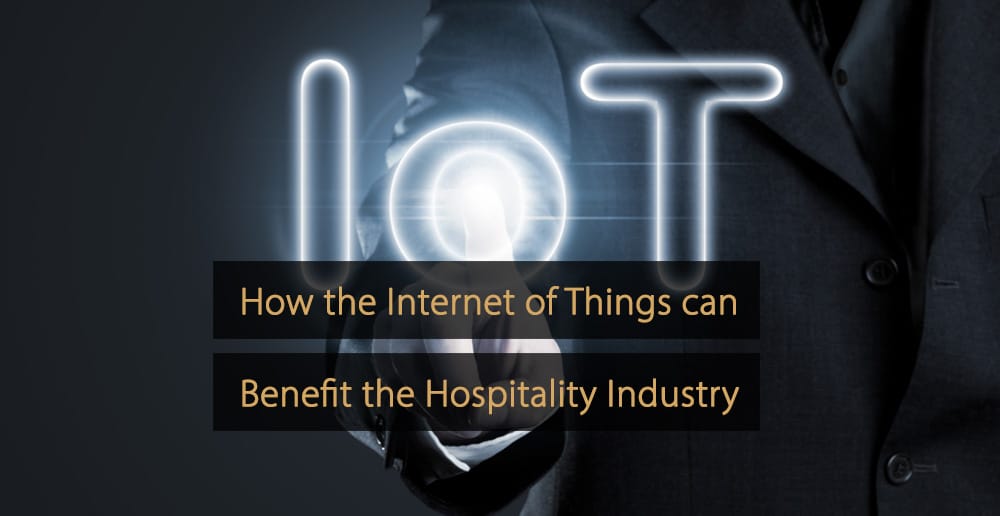
Extremely Informational article and robots are incredible to the Hospitality Industry! Thank you Kindly!
Such a nice post about artificial Intelligence within the hospitality industry, very learn full. We would like to learn more about AI within Hospitality.
Thank you for the information about the usage of AI within the hospitality industry.
I’m really getting a charge out of reading your article about AI in hospitality. It looks like, you spend a lot of energy and time on your blog. I have bookmarked Revfine.com and I am expecting to examine new articles. Continue to do a marvellous job. Thanks.
Thank you for this information about AI in hospitality; very informative.
Very useful. Thank you!
It is very useful information that helps research related to AI issues in the hotel sector.